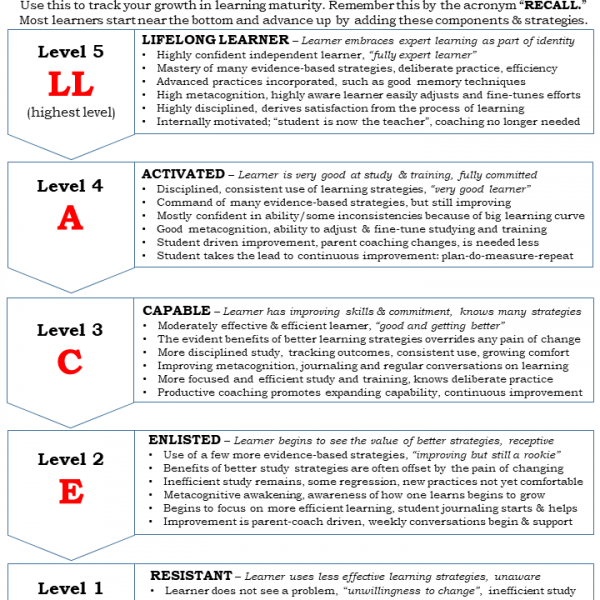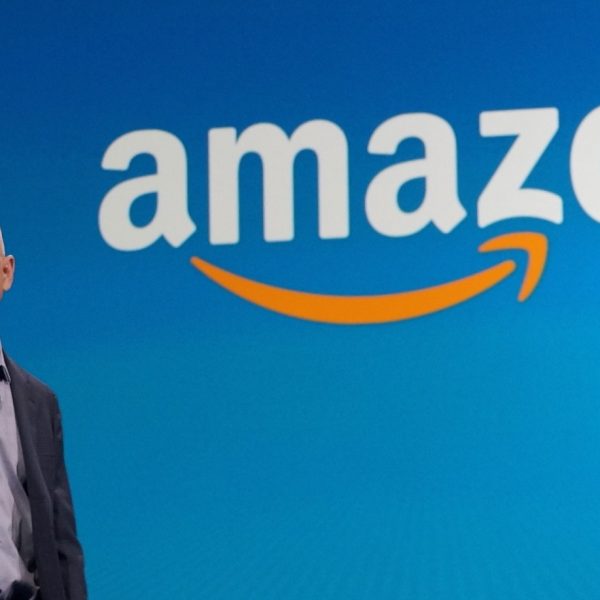Greetings!
Children often underestimate their own ability to learn. This can be a big problem when the learning gets hard. Read below to learn how to deal with situations where your child is losing self-confidence and you hear protestations like “I can’t learn this” or “I’m not smart enough to learn math.”
We will explore a four-step process with two simple questions you use to stimulate a deeper conversation with your child about learning and growing their confidence in their own brain, which I’ll explain below.
- How will you use your gift?
- What choices will you make?
First, let’s examine what we can learn from the founder of Amazon who provides us with some useful guidance on learning and choices.
Jeff Bezos
Jeff Bezos is the CEO and founder of Amazon. When he started Amazon in 1994, it began as only a seller of books and many expected he would fail. But we know today that this became one of the largest companies in the world – so perhaps there are some lessons for us. Business leaders can provide fresh insights that surprisingly apply to homeschooling. Let’s explore this.
I think business leaders who are successful on this scale have had to perfect their own ability to learn and relearn, and thus carry insights that can benefit us as homeschoolers. Let’s use one of his speeches as a source of ideas for conversations you can share with your children about learning.
Below is an excerpt from his speech originally delivered as the baccalaureate remarks to graduates from Princeton University on May 30, 2010. These questions provide some important conversation openers. I will also cover a 4-step discussion technique you can pursue on “gifts and choices” around learning with your children.
“Tomorrow, in a very real sense, your life — the life you author from scratch on your own — begins.”
- How will you use your gifts? What choices will you make?
- Will inertia be your guide, or will you follow your passions?
- Will you choose a life of ease, or a life of service and adventure?
- Will you wilt under criticism, or will you follow your convictions?
- Will you bluff it out when you’re wrong, or will you apologize?
- Will you guard your heart against rejection, or will you act when you fall in love?
- Will you play it safe, or will you be a little bit swashbuckling?
- Will you be a cynic, or will you be a builder?
- Will you be clever at the expense of others, or will you be kind?
- When it’s tough, will you give up, or will you be relentless?
“I will hazard a prediction. When you are 80 years old, and in a quiet moment of reflection narrating for only yourself the most personal version of your life story, the telling that will be most compact and meaningful will be the series of choices you have made. In the end, we are our choices. Build yourself a great story. Thank you and good luck!”
– Jeff Bezos
This is a fine speech that poses some great questions you can build multiple conversations around. Remember, when you ask thought provoking questions, always follow up with more questions that get your child to the “how.” These are most useful questions to guide insightful thinking.
Let’s explore how you can guide a deeper discussion with your child on learning using a four-step approach. Here are the steps:
The Four Step Conversation
- Step One: Provide engaging information on the great gift – the human brain
- Step Two: Ask your child “How will you use this powerful gift?” – listen to the response.
- Step Three: Explore the choices available to use this gift
- Step Four: Ask your child “What choices will you make?”
Step One: Explain Our Great Gift
Taking his first question, Bezos asks – “how will you use your gifts?” You will first need to provide information that will positively shape the response to this question.
Start your conversation by sharing some arresting facts with your child about the human brain.
- There are about 100 billion tiny, tiny little cells in our brains called neurons. There are so many that it would take you over 3,000 years to count them all.
- An adult human brain weighs around 3 pounds.
- The brain might account for only about three percent of your body weight, but it needs about 30 percent of the blood being pumped by your heart. It uses allot of energy. This shows how much attention and support it requires in comparison to the other important areas of your body.
- Your brain’s storage capacity is unlimited – the brain’s storage does not get used up like the data storage of a computer. There is endless brainpower.
- Your brain has enough power and memory to store over 3 million entire TV shows.
- There are neurons in your brain that tell everything in your body what to do. They send more messages than all the phones in the entire world.
- The neurons send all that crazy information to your brain at more than 150 miles per hour! That is the same speed that a bullet train can reach…seriously fast. But if you need to act quickly, motor neurons can send information at more than 200 miles per hour!
- It takes your brain about 1/10,000th of a second to respond to something and generate an action.
Neuroscience reveals our brains are more powerful than any supercomputer, yet we often take this amazing ability for granted. We forget what we have. And sometimes we discount it and underestimate it, or worse, some don’t use it.
So how do we handle the situation when a child says, “I’m not smart enough to learn math.”
We restore this temporary loss of confidence with an expanded appreciation for this amazing gift by sharing awesome information. Use these and other facts to create genuine “awe” in this gift we have. You can also ask your child to do some research and learn more about the human brain, and to share this information with you during a family meeting.
Step Two: Ask Your First Question on How
Once you establish this foundation, translate this into a discussion about potential actions your child might take given this information. Begin your deep conversation on learning with:
- How will you use this powerful gift?
Of course, you will want to guide this conversation into the implications of how this powerful gift connects to the ability to learn.
Step Three: Explore the Choices Available
The next conversational step is to talk about the choices that are available. When it comes to the brain, there are two clear sets of choices to choose from – use it or lose it. These are made every day and every time the child sits down to study. The goal of deep parent coaching conversations is to lead to thoughtful conclusions and discussion of potential actions. Share this next information to set this up.
Neuroscience tells us there is this amazing thing called “brain plasticity” – meaning that we actually grow our brains through use and practice. Neural circuits become stronger through practice and effort, much as muscles do through training and exercise. When we read and study, we are in effect rewiring our brains. fMRI scans of the brain show actual growth in various areas of the brain after deliberate practice and training.
- Neuroplasticity means your brain has the powerful ability to reorganize and grow itself throughout your lifetime – a truly remarkable thing. One study by the University of Montreal, compared the brain activity of individuals who were born blind and those who had normal vision. They found that the part of the brain that’s normally wired to work with our eyes can instead rewire itself to process sound information instead of visual perception.
Moreover, we also know we lose this added capacity when we don’t use those neural circuits. The brain is designed to constantly sort through and get rid of information that is not being used so it can be most efficient.
This means there are choices to make about growing or losing your capacity to learn.
Learning involves connecting information to that which we already know. When we study and learn, we are by building a matrix of information, and we attach this new matrix to existing ones, making it easier to remember and recall information. This is how the brain works – having knowledge makes it easier to acquire more knowledge!
This is the reason it is so hard to remember something that is entirely new – because we have little or no relevant background knowledge to connect it to.
Step Four: Exploring Our Choices
Once you establish the above concept of brain plasticity, you are ready to ask the second question Bezos asked, “what choices will we make with these gifts?”
Open this conversation on how to become a better learner by asking this next question:
- When it comes to growing your brain, what choices will you make?
Explore this “use it or lose it” reality when it comes to our brains. What are the advantages to committing yourself to lifelong learning? This idea is also expressed by this scripture:
Matthew 13:12
“For whosoever hath, to him shall be given, and he shall have more abundance; but whosoever hath not, from him shall be taken away even that he hath.” (KJ Version)
This should help us understand we need to have strategies to utilize and grow what we have been given. Growing our brains will lead us to even more.
Summary of the Key Takeaways
- There are many sources of useful knowledge that you can share with your child.
- You can use this 4-step discussion process.
- First share some awesome facts behind this wonderful gift.
- “How” questions are powerful. Ask, “How will you use this gift?”
- Brain plasticity means you can grow your brain. The more you learn how the brain works, the more you will appreciate it and your self-confidence improves.
- Use it or lose it. Understand this powerful choice you make about your brain.
- Explore the many choices you can make to become an expert learner.
- Tie this all together to promote the value of lifelong learning – you can become who you want to be by making good choices about learning.
- “In the end, we are our choices. Build yourself a great story.” – J. Bezos
This post is the first in a series intended to provide useful ideas for homeschooling parents that will enable you to have deeper conversations with your children about learning. We desire to support your promotion of learning as a family value and believe that fostering lifelong learning in your children is a very important goal. For more useful ideas and parent coaching tools, go to our website www.theCenterforHomeschooling.com








